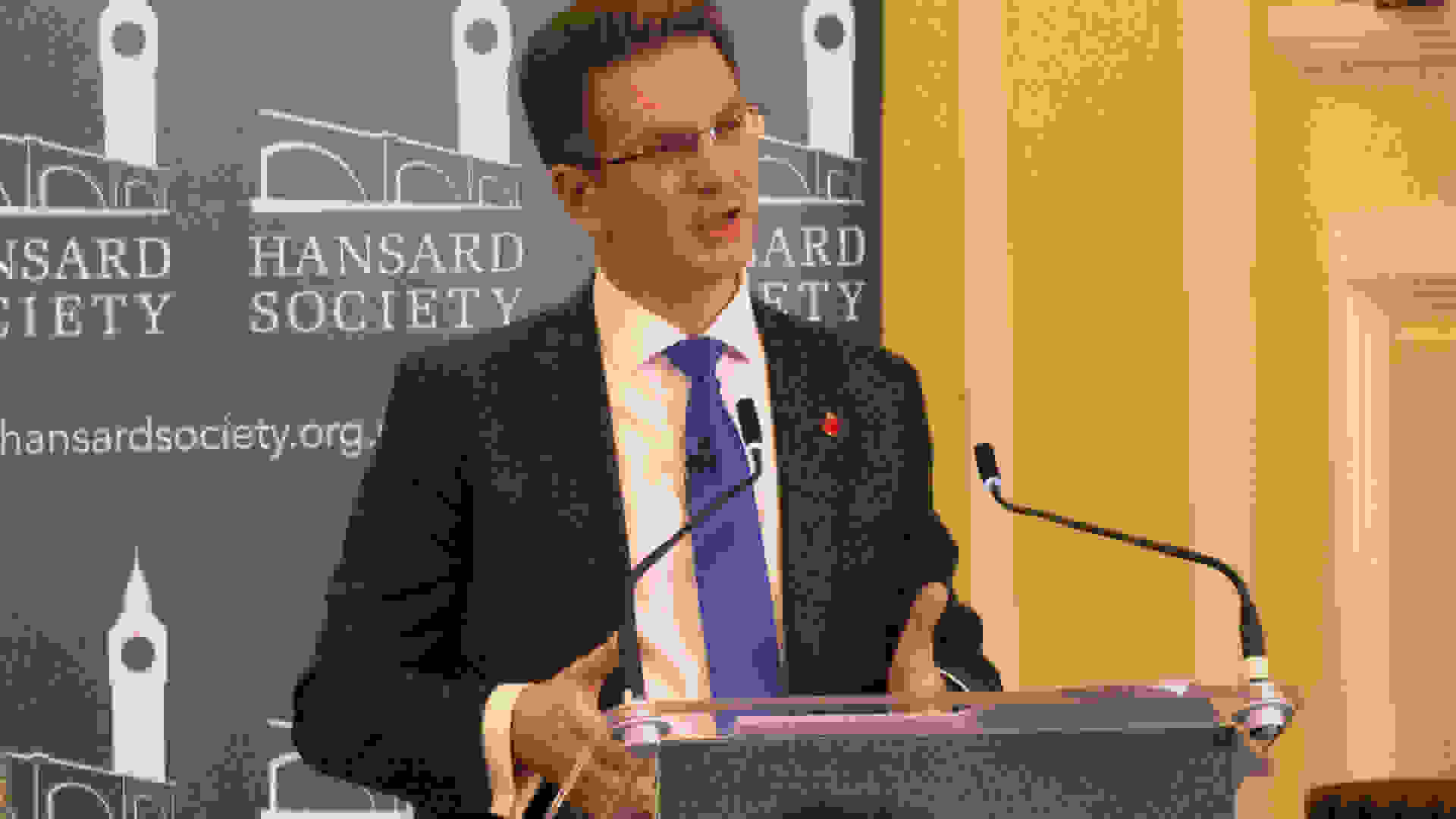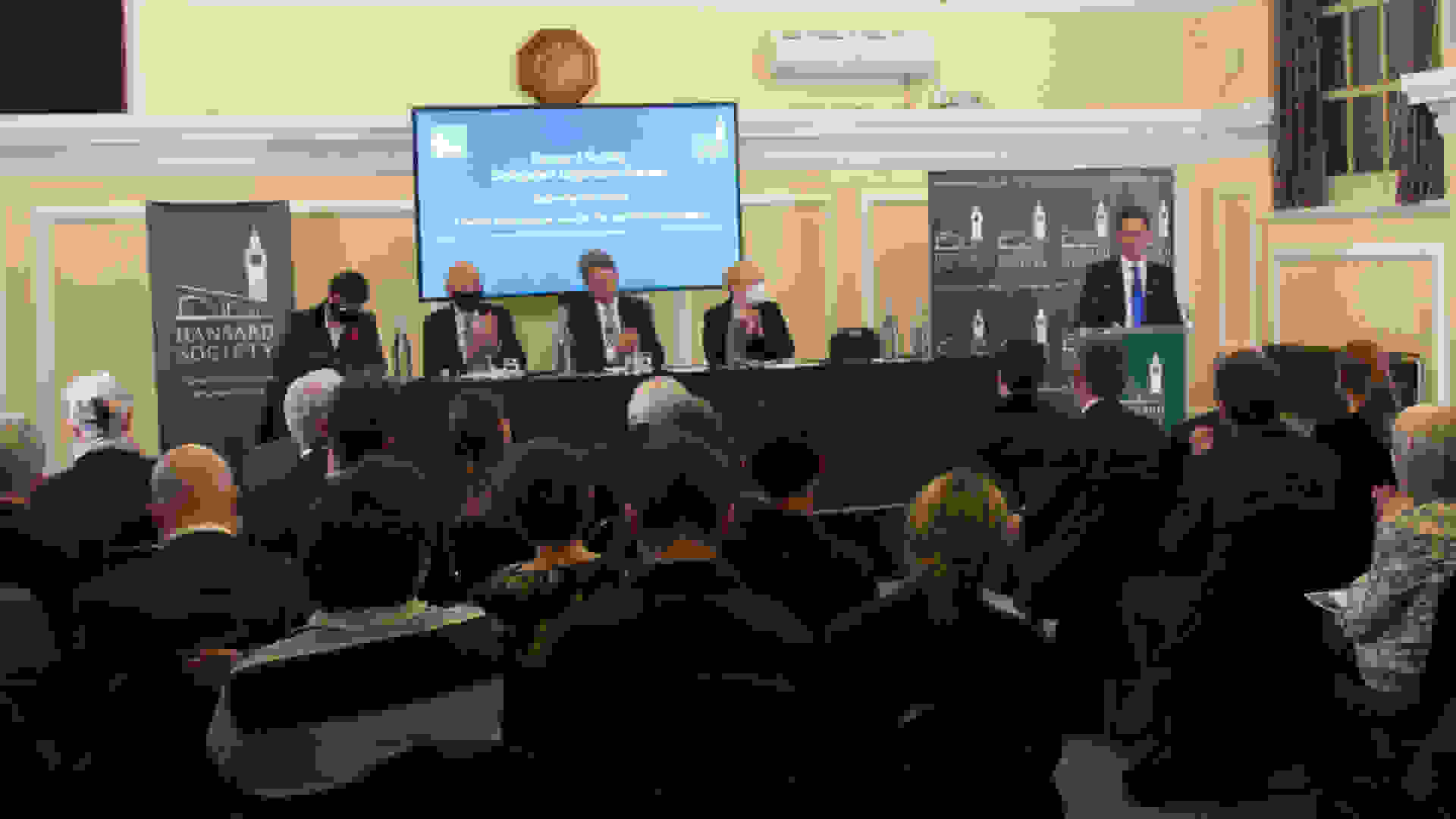Publications / Democratic control of political power matters: keynote address by Steve Baker MP
The full text of the keynote address given by Steve Baker MP at the launch of the Hansard Society Delegated Legislation Review, 2 November 2021.


On 2 November, the Society launched its Delegated Legislation Review to an audience of MPs, Peers and constitutional experts. The event – which included two panel discussions with Members from across the political spectrum and a keynote address by Steve Baker MP – unpacked the problems with the delegated legislation system and explored avenues for reform.
Speakers
Thangam Debbonaire MP
Patrick Grady MP
Mark Harper MP
Chair: Dr Ruth Fox, Director, Hansard Society
The Delegated Legislation Review: presentation by Dr Ruth Fox, Director, and Dr Tom West, Delegated Legislation Review Manager, Hansard Society
The full text of the keynote address given by Steve Baker MP at the launch of the Hansard Society Delegated Legislation Review, 2 November 2021.

Keynote address: Steve Baker MP
Respondents: Dame Angela Eagle MP and The Rt Hon the Lord Judge
Chair: Murray Hunt, Director of the Bingham Centre for the Rule of Law

This work is supported by the Legal Education Foundation as part of the Hansard Society's Delegated Legislation Review.
MPs will debate annual increases to the state pension and a range of social security benefits, alongside proposed funding settlements for policing and local government. The Government will also lead a debate on the UK–India Free Trade Agreement. Ministers from the Home Office, Energy, Transport, and Northern Ireland departments will face oral questions in the Commons, while select committees will question ministers on business rates, housing affordability and Government data security. In the House of Lords, Peers will continue scrutiny of the Children’s Wellbeing Bill, the English Devolution Bill, and the Victims and Courts Bill. Meanwhile, Commons public bill committees will examine the Railways Bill and the Cyber Security Bill. Backbench business includes debates marking LGBT+ History Month, improving mobile connectivity, and increasing survival rates for brain tumours.

The Restoration and Renewal Client Board’s latest report once again confirms what Parliament has known for nearly a decade: the cheapest, quickest and safest way to restore the Palace of Westminster is for MPs and Peers to move out during the works. The “full decant” option was endorsed in 2018 and reaffirmed repeatedly since. Remaining in the building could more than double costs, extend works into the 2080s, and increase risks to safety, accessibility and security. With the Palace already deteriorating and millions spent each year on patchwork repairs, further delay would itself be an expensive course of action, one that defers decisions without offering a viable alternative.

It has been a bruising week for the Prime Minister after the House of Commons backed a Conservative “Humble Address” demanding documents on Sir Keir Starmer’s vetting of Lord Mandelson for the Washington Ambassadorship. We explain how the procedure works, what role the Intelligence and Security Committee may play in decisions on disclosure, and how legislation to strip a peerage could be introduced. Plus, the latest on the Restoration and Renewal of Parliament as yet another report lands with a new set of costings. Listen and subscribe: Apple Podcasts · Spotify · Acast · YouTube · Other apps · RSS

Why can’t MPs simply resign, and why does leaving the House of Commons still involve a medieval-sounding detour via the Chiltern Hundreds or its less glamorous cousin the Manor of Northstead? This week we unravel the history, constitutional logic and legal fudges behind this curious workaround, with some memorable resignations from the past along the way. We also assess the Government’s legislative programme as the Session heads toward its expected May close, including the striking lack of bills published for pre-legislative scrutiny. Finally, as Parliament begins the five-yearly process of renewing consent for the UK’s armed forces, we examine why an Armed Forces Bill is required and hear from Jayne Kirkham MP on how her Ten Minute Rule Bill helped extend the new Armed Forces Commissioner’s oversight to the Royal Fleet Auxiliary. Listen and subscribe: Apple Podcasts · Spotify · Acast · YouTube · Other apps · RSS

As the assisted dying bill grinds through the House of Lords under the weight of more than a thousand amendments, Lord Falconer has signalled that time is running out. With the Bill unlikely to complete its Lords stages this Session, he has openly raised the possibility of using the Parliament Act to override the upper House in the next Session. In this episode we explore what that would mean, how it could work in practice, and the political choices now facing ministers and Parliament. Listen and subscribe: Apple Podcasts · Spotify · Acast · YouTube · Other apps · RSS

